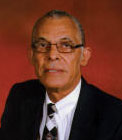17 Oct Ten Years Ago, When My Church Began
Steve Dennie, Communications Director
In two days, Anchor Community Church celebrates its tenth anniversary. Pam and I were among the 50 people sent out from Emmanuel UB church in Fort Wayne in 1998 to “restart” the former Third Street UB church, which had existed there since the 1930s.
The church had a great history, but had declined in size and not adapted to the changing neighborhood. Most of the attendees were older and drove in from outlying areas.Third Street was shut-down for five months, and underwent an extensive renovation. New carpet everywhere. Fresh paint. Got rid of the pews and organ. A whole new platform area. New name and sign. Lots of other stuff. Meanwhile, Emmanuel people were challenged to commit a certain amount of time–3 months, 6 months, a year–to getting the reincarnated church going. Pam and I signed up “indefinitely.”
In September of that year, the core group met in our home–the first time we’d been together. With only a few weeks until our first service. Some of us didn’t even know each other; I knew only a few others very well. We looked at what each of us brought to the table, our gifts and interests.
Amazingly, out of this haphazard assemblage of people, God brought together exactly what we needed. There was certainly no human design behind it.
Today, only Pam and I, along with Pastor Tim and Tara (who have since added four children to the mix) remain from that initial core group. Most of the 100-plus people who attend Anchor come from the immediate community. Which was the original vision.
A few weeks ago, while still on vacation, Pam and I attended the Sonrise United Methodist Church near where we live. They told about the new church they were starting in Roanoke, and how 50 people had committed to leaving Sonrise to take part.
It took me back ten years, and I envied those 50 people.
- They will work harder than they’ve ever worked in church.
- They will be needed more than Sonrise, with its large size and resources, ever needed them.
- They will pray harder, knowing full well that they are in over their heads.
- They will do things way out of their comfort zone.
- They will think about their new church, this baby, all week long, looking forward with eagerness and some fear to the coming Sunday.
- And they will be totally energized by the venture.
That’s what Anchor did for me ten years ago. And I wish more United Brethren people could experience the same thing.

 I sent a note to Owen Gordon (right), UB endorsed missionary and president of Jamaica Bible College, commenting on how excited Jamaica must be over the success of their sprinters in the Olympics. Owen responded:
I sent a note to Owen Gordon (right), UB endorsed missionary and president of Jamaica Bible College, commenting on how excited Jamaica must be over the success of their sprinters in the Olympics. Owen responded: